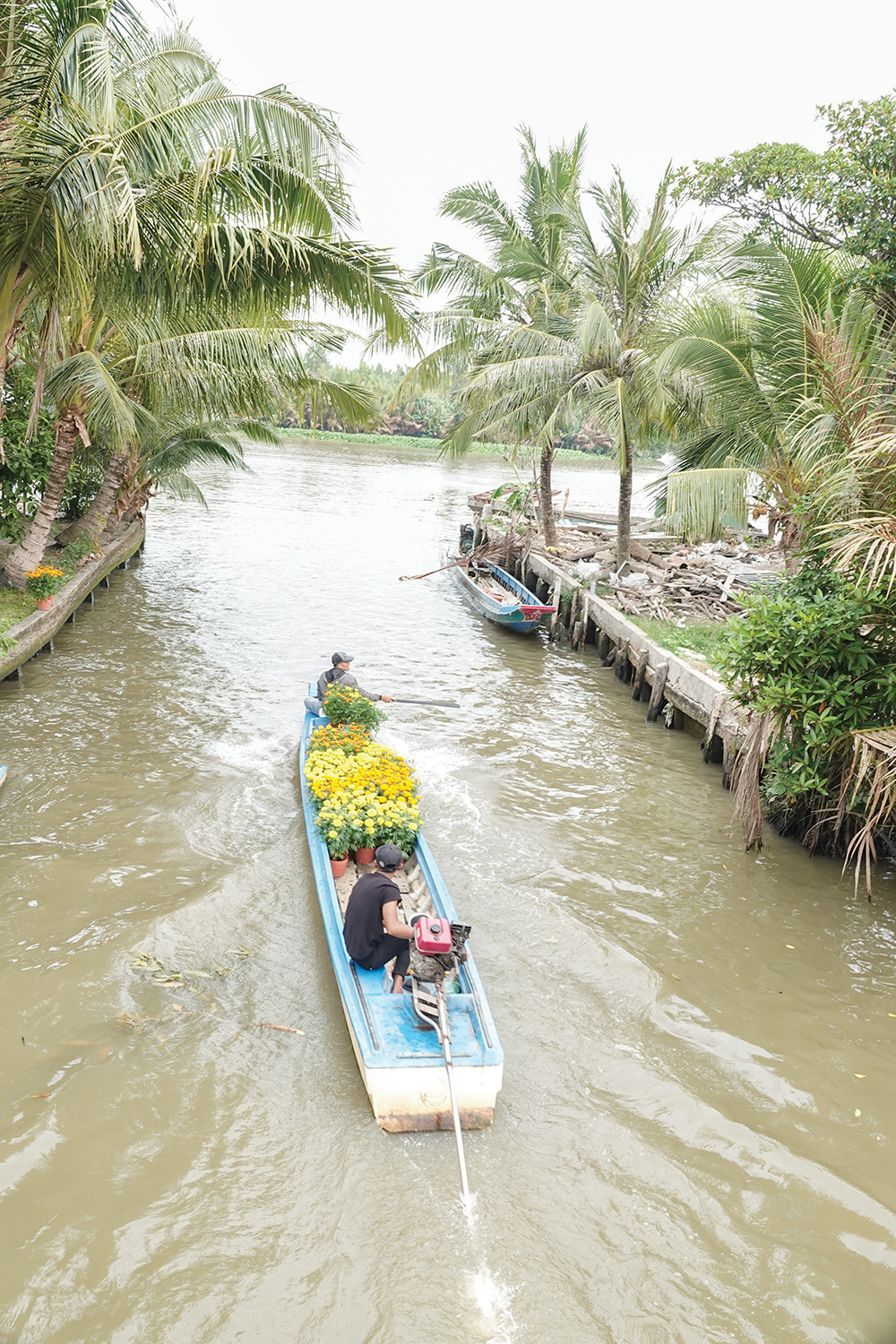
Southern Vietnamese discourse bears the strong imprint of rivers. Photo: DUY KHOI
Due to many reasons, especially from geographical characteristics, some words and sounds in daily life are newly created by Southern residents, enriching their vocabulary on the basis of a common landscape: everywhere is vast rivers and water. Because daily life, travel, and ways of making a living are also closely related to rivers and water, Southern residents have a very rich way of using related figurative and metaphorical words.
With the word "giang" - whose etymology is "river" - ancient people said "co giang" means to hitchhike on another person's water vehicle (boat, canoe), nowadays generally it means hitchhiking on a vehicle (land vehicle). Sometimes accompanying someone on foot is also jokingly said "co giang". In particular, people also say "qua giang" (cross the river), for example in the old song: "One betel leaf / Let your mother know / Once or twice we have made a date / The foolish child has followed the ferry / Luckily we are in the same restaurant or village / Then our love story will be the same, even gold and stone".
Besides, "giang ho" was previously used to refer to people who lived here and there freely and freely like "giang ho chivalrous". Later, it was understood to mean people who made a living by trading on the river like "gao chong nuoc song"; but gradually, people also used "giang ho" as a slang word, referring to bad people who lived on the margins of society.
In the South, words related to "water" or "water" appear a lot in place names such as Cai Nuoc, Nuoc Trong, Nuoc Duc, Dau Nuoc, Binh Thuy, Tien Thuy, Hoa Thuy, Tan Thuy, An Thuy, Thai Thuy, Thuy Thuan... If there are rivers and water, there must be wharves to go up and down, so in the South there are Ben Nghe, Ben San, Ben Tre ... The word "water" has many metaphorical uses. "Toi nuoc", "toi ber" means to reach the end, to this moment; "len nuoc" means a solid object that has been polished, "xuong nuoc" means a person who is "on top" suddenly loses power and has to soften his voice, "duoc nuoc" means to take advantage of the moment when others are giving in to do more. "Giving nuoc" means to encourage people to be excited...
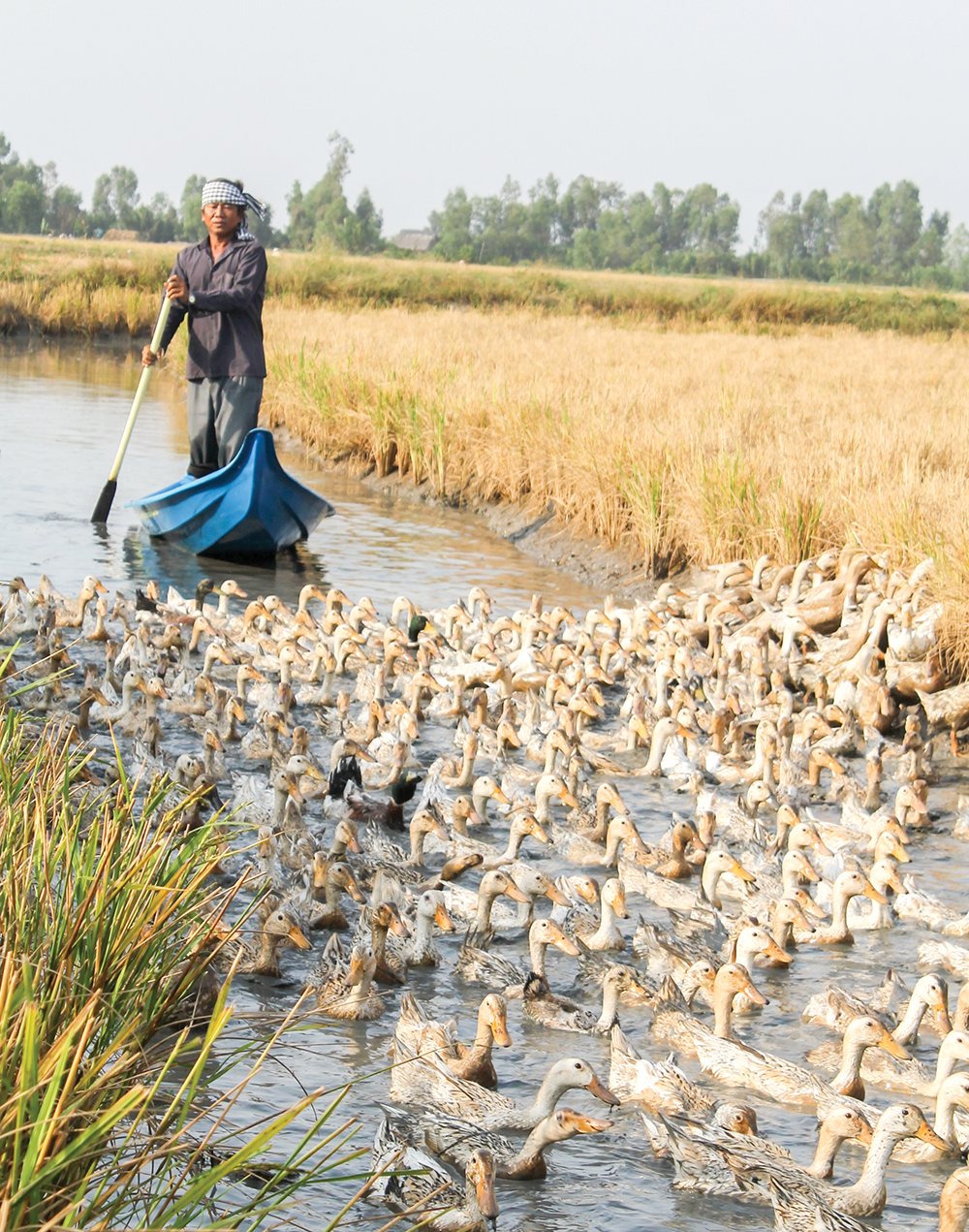
Ducks running in the fields. Photo: DUY KHOI
Even more interesting, dishes that "have the ingredients and the water" such as braised fish sauce, vegetarian or non-vegetarian soup... are placed in a "hot pot" shaped like a large bowl, with a place in the middle for hot coals to keep the dish hot and the place where the coals float up with water around it looks like an island on the river, so the Southern people named it island hot pot - island dish. In that direction, we see countless words and sounds that are commonly used by the people originating from life revolving around rivers.
In addition to the meaning of drowning, in the South, "Drowning" also means "losing reason", "running out of strength", and "sinking". "Out of breath" is used to describe when wading too far and cannot hold on, and is gradually used to talk about doing something that requires too much effort, making it difficult to complete. "Leading" is not only steering a boat, but also the act of talking about one thing and trying to avoid it by changing to another. "Cau" is not only fishing, but also "cau khach" which means showing many ways to attract others or fishing thickly or thinly with the intention of deceiving others for one's own benefit. "Cheo dai" means speaking in a halting manner, not wanting to finish. "Bo troi" refers to the act of not thoroughly handling a problem. "Lan hup" means being absent unusually, with the intention of avoiding. "Quay muc nuoc" refers to people who often cause trouble. "Water poured on taro leaves", "Water up to the feet then jump", "Muddy water catches storks", "Flat land waves rise"... are familiar idioms.
Words related to boats and ships with associated customs and objects are also used with many different meanings. For example, to talk about men who are sons-in-law in a family, they are called "cot rowing" brothers (but for women who are also daughters-in-law, they are called "chiem ban dau" (brothers in law), not "chiem ban ty rowing" (sisters and friends of the wife), because rowing boats is very hard work). "Già do" means to pretend not to know. "Kèo bè kọp cánh" means to create factions and cliques. "Bánh quai chèo" is a sweet cake with two pieces of dough as big as a big toe twisted together like a rowing strap. "Ghe cái tải trau" refers to people who are strong but give or take on tasks too lightly. "Xứ cầm bèo" refers to cases where the person in charge does not judge clearly and deliberately lets go. "Lost both the net and the boat", "Standing at the bow to take the brunt", "The foolish helmsman takes the brunt", "Letting go of the oars to hold the oars", "Rowing smoothly"... are metaphors that almost everyone understands.
Life on the river cannot lack products and the image of fish and shrimp is used with many unexpected meanings. "Sặc rần" means a hair cut that is damaged by a clumsy worker. "Ngâm tôm" means a problem that is brought up but not resolved, just anchored, left there forever, making people wait wearily (shrimp is an animal that knows how to "shoot back", so the more you wait, the more desperate you are). "Tép rong tém riu" means small and insignificant. "Tép di tém loi" means a person who speaks quickly, saying anything to make the listener happy. "Rông" means temporarily imprisoning for a while to "handle" later (like spreading fish to catch and eat gradually). "Vụt tui's tail" means the act of following someone else's words without clearly showing one's stance. "Đập nước đi cá" means to act aggressively to scare people and take their money...
The above are just a few lists, in everyday folk language there are many words and phrases used literally, but also have many semantic, figurative or metaphorical meanings. These uses are still popular and intentionally or unintentionally make listeners imagine the unique life of the Southern river.
NGUYEN HUU HIEP
Source: https://baocantho.com.vn/doi-dieu-ve-bien-hoa-ngu-nghia-trong-cach-noi-cua-cu-dan-nam-bo-a193332.html





![[Photo] Opening of the 14th Conference of the 13th Party Central Committee](https://vphoto.vietnam.vn/thumb/1200x675/vietnam/resource/IMAGE/2025/11/05/1762310995216_a5-bnd-5742-5255-jpg.webp)

![[Photo] Panorama of the Patriotic Emulation Congress of Nhan Dan Newspaper for the period 2025-2030](https://vphoto.vietnam.vn/thumb/1200x675/vietnam/resource/IMAGE/2025/11/04/1762252775462_ndo_br_dhthiduayeuncbaond-6125-jpg.webp)
















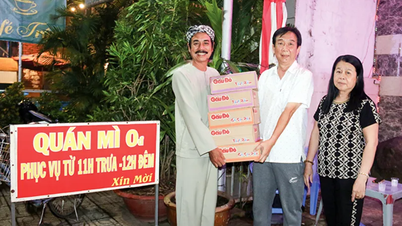

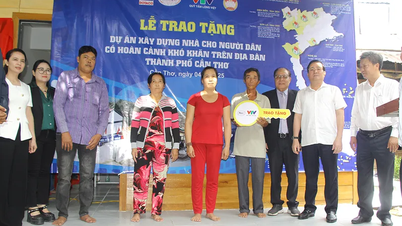
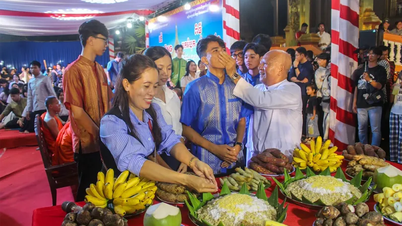





















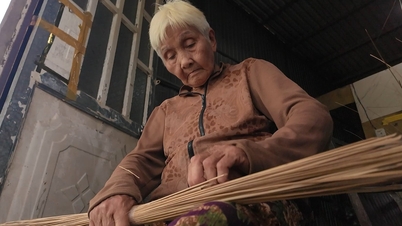


























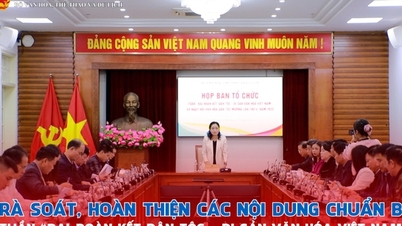
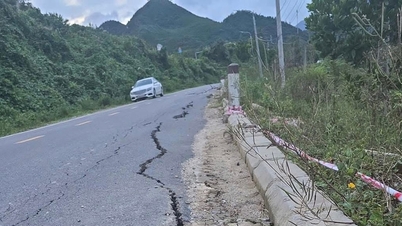




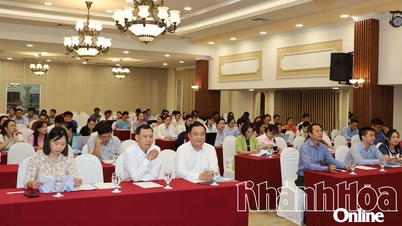



















Comment (0)